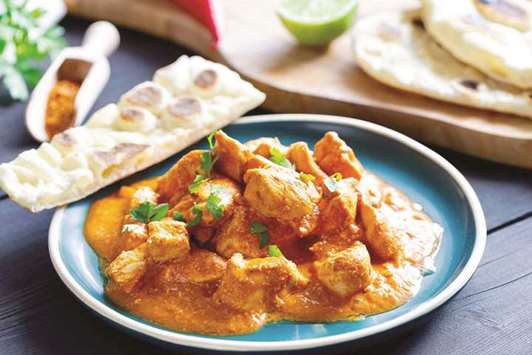It is the time of the year when we welcome our favourite mango called the king of fruits. I can easily say that it is the most popular, nutritionally rich fruit with unique flavour, fragrance, taste and health promising benefits. Mango is also classified as a super fruit.
Mango is a tropical fruit believed to be originating in the sub Himalayan plains of the Indian subcontinent about 5,000 years ago. The exotic fruit belongs to the same family of trees as for pistachio and cashew nut and there is a clear resemblance in shape of all these three fruits. Being a seasonal fruit, does not limit its consumption. Fresh mangoes are eaten around the world every day more than any other fruit. Mango comes in many different shapes, sizes and colours including yellow, orange, red and green. The vitamin content of mango depends on the variety and maturity of the fruit. When a mango is green and still growing there is a high vitamin C content, as the fruit ripens and matures the amount of vitamin A increases.
Giving someone a basket of mangoes is considered a gesture of friendship. Many people use a box of seasonal ripe mangoes as a gift for friends and family when the fruit is in season. One of the oldest living mango tree is 300 years old and is found in East Khandesh. Surprisingly, this tree still produces viable fruit. Mango is a tropical tree cultivated in many regions of India, and now its farming has been extended wide across the world in many continents. After flowering, its fruits grow at the end of a long, string-like peduncle, with sometimes more than one fruit to a peduncle. Each fruit measures 5 to 15 cms in length and about 4 to 10 cms in width, and has typical ‘mango’ shape, or sometimes oval or round. Its weight ranges from 150 g to around 750 g. Outer skin, pericarp is smooth and is green in un-ripe mangoes but turns in ripe fruits into golden yellow, crimson red, yellow or orange-red depending upon the cultivar type. Fresh mango season lasts from April until August. One of the best tasting mangoes is Alphonso mango known for its big size, meaty flesh and delicate tart and sweet taste.
Mango comes in different shapes and sizes depending upon cultivar types. Internally, its flesh, mesocarp is juicy, orange-yellow in colour with numerous soft fibrils radiating from its centrally placed flat, oval-shaped stone, enveloping a single large kidney-shaped seed. Its flavour is pleasant and rich and tastes sweet with a mild tartness. A high-quality mango fruit should feature no or very less fibre composition and minimal tartness.
Wash mangoes in cold running water in order to remove dust/dirt and any surface chemical residue. Pat dry its outer skin using a soft cloth. Mango fruit should be eaten all alone without any seasonings, additions to experience its rich flavour. One question which many people ask is what is the right way to cut a mango? Cut the fruit lengthwise into three pieces in such a way that the middle portion consists of husky seed. Then, slice through the skin to separate the skin from the pulp. Chop pulp into desired sections.
Alternatively, using a sharp knife, cut through the flesh on either side of the central seed (stone). This way, you get two big halves of a mango fruit and a central stone portion. Then, take one-half and score the flesh in a horizontal and vertical pattern taking care not to cut deep through the skin. Fresh mango cubes are a great addition to fruit salads, smoothies, shakes. Mango fruit is also used to prepare jam, jelly, ice cream and in sweet-candy industries. Unripe, raw, green mango has been in use in the preparation of pickles, jam, marmalade, and chutney in the Asian countries. Mango fruit is rich in pre-biotic dietary fibre, vitamins, minerals, and poly-phenolic flavonoid antioxidant compounds.
The below recipe is one of my favourite recipe now a days.
Mahakali Mango Masala
Ingredients
Serves 2
Chicken breast (800 gm) 1 no
Mango purée 1 cup
Mango fresh 1 no.
Tomato purée 3 cup
Ginger, chopped 1 tbsp
Paprika powder 1 tsp
Coriander leaves few sprigs
Cashew nut ¼ cup
Salt to taste
Coriander powder 1 tsp
Mango, diced ½ cup
Cooking cream 1/3 cup
Kasoori methi 1 tbsp
Garnish
Mint leaves to garnish
Cooking cream to garnish
Method
Heat oil in a heavy bottom sauce pan add ginger, tomato purée, coriander powder, salt, cashew-nut, coriander leaves, paprika powder
Bring to boil and simmer over slow flame to cook the tomato sauce for 25-30 minutes
Remove the sauce from flame and blend to a smooth sauce, keep aside
In a separate pan heat oil and sauté diced chicken breast, stir to avoid burning it
Add the prepared sauce to the chicken, add diced mango and mango purée
Once the chicken is cooked add cooking cream and adjust the seasoning, sprinkle kasoori methi
Serve hot garnished with mint sprig and heavy cream along with choice of bread or rice.
* Chef Tarun Kapoor, Culinary Mastermind, USA. He may be contacted at [email protected]

UNIQUE: Mahakali Mango Masala is served hot with rice or bread. Photo by the author
